Search Images
Browse Content (p. 1194)
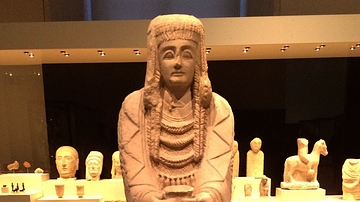
Image
Great Lady Offerant
This almost life-sized female sculpture is carved in the round in an offerant pose. It dates from the 3rd century BCE, and it is ancient Iberian in origin. It was found at the Shrine of Cerro de los Santos (Montealegre del Castillo, Albacete...
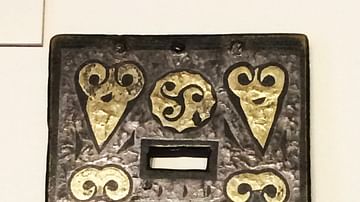
Image
Carpetani Belt Buckle
This belt buckle depicts wild boars and is made from bronze, silver, and gilded silver. It was made by members of the Carpetani culture around the 3rd-2nd century BCE, and it was discovered in the province of Toledo, Spain. (Museo Arqueológico...

Image
Priestess of the Sun Necklace
This necklace made of clay was found in a grave alongside other ornaments and two veil holders. It dates from the 5th-4th century BCE and was found at the Necropolis of Navafría, Clares (Maranchón, Guadalajara), Spain. As it is thought to...

Image
Han Watchtower Model
A pottery model of a watchtower, Han dynasty, 25-220 CE. Height: 86 cm. (British Museum, London)

Image
Valhalla
Valhalla, Odin's hall of slain warriors (Einherjar), who are here looked after by Valkyries. To the right, Odin sits upon his throne flanked by one of his wolves. At the Ragnarök, Odin will lead his Einherjar into battle against the forces...
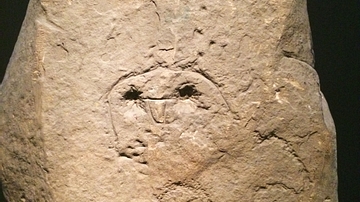
Image
Idol of Corao
Although known by this name, this object is not actually an "idol," but an orthostate from a dolmen, which has since disappeared. Archaeologists and specialists believe that it originally came from the Dolmen of Mián, which is located in...
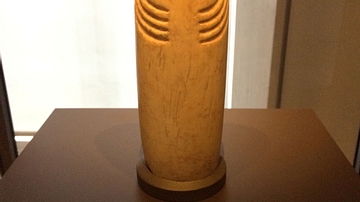
Image
Idol of Extremadura
The representation of eyes is a common trait shared by different groups of idols and has given rise to a generic term for these objects: "eye idols." Other shared feeatures are the representation of hair and what are thought to be facial...
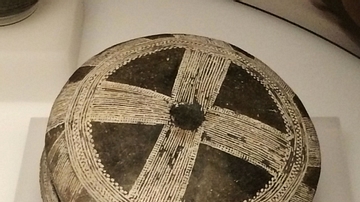
Image
Early Bronze Age Bell Beakers from Iberia
These clay bell beakers come from the Early Bronze Age necropolis of Ciempozuelos (Cuesta de la Reina, Madrid), Spain and they were found during excavations conducted in the late 19th century CE. (Ciempozuelos was the first Bell-Beaker necropolis...
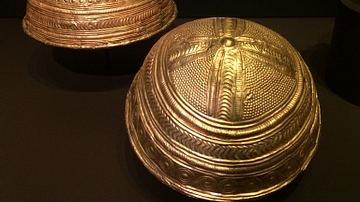
Image
Late Bronze Age Iberian Bowls
These bowls are from the Late Bronze Age settlement of Axtroki (Bolibar, Excoriatza, Guipúzcoa), Spain and are made from pure gold. When they were found, one bowl was inside the other. It has recently been suggested that these pieces and...

Image
Stela of Hernán Pérez VI from Bronze Age Iberia
This granite stela dates from the Early or Middle Bronze Age. It was discovered in Cáceres, Spain. (Museo Arqueológico Nacional, Madrid)